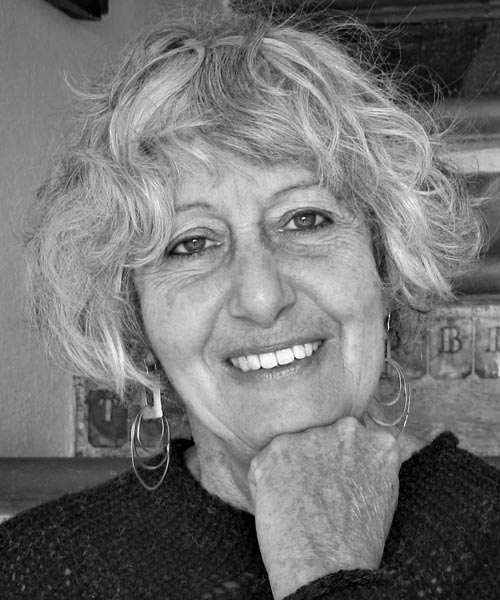
Shen Series - Course 5
by Elisa Rossi
Constraint yu 郁, agitation and restlessness fanzao 烦 躁, internal heat neire 内 热., running piglet qi bentunqi 奔豚气, plum pit qi meiheqi 梅核气, zangzao 脏 躁, baihebing 百合病 : madness diankuang癫 狂, as described in Classics and illustrated by 7 actual cases.
Shen Series - Course 5
Course Overview
Sign and syndromes explored starting from the Classics and used to understand our patients and their clinical conditions. 7 clinical cases are fully described to help orientation in diagnosis and treatment.Constraint yu 郁 was said “the origin of most of illnesses” by Wang Lu (1332-1391), but already in Suwen (ch. 21) we read that “in strong people qi circulates and therefore illnesses resolve themselves. … In weak people qi becomes stuck and the result is illness.”
Fanzao 烦 躁: significance of the common symptom of internal restlessness and external agitation.
Internal heat neire 内热: excess of emotions transforms into heat, which consumes yin and zang and generates illness (wuzhi huare theory 五志化热) developed by Liu Wansu (1120-1200) and then Li Dongyuan and Zhu Danxi.
Bentunqi 奔豚气, meiheqi 梅核气, zangzao 脏 躁, and baihebing 百合病 were described in Jingui yaolue (220 CE), now listed by modern Chinese texts as emotional illnesses.
Diankuang 癫 狂: manifestations and causes of this severe mental condition according to Nanjing (ch.59) and the following traditional medical thought. A comparison with actual conventional psychiatry is depicted.
Each content is explored through examples from our daily clinic, taking also into account some problematic issues concerning the therapeutic relationship.
Course Objectives
- Explore classical signs as constraint yu 郁, fanzao 烦 躁, neire 内热.
- Explore classical syndromes as bentunqi 奔豚气, meiheqi 梅核气, zangzao 脏 躁, and baihebing 百合病.
- Explore the classical syndrome diankuang 癫 狂.
- Discuss classical signs and syndromes through actual clinical cases.
Course Outline
0 hrs - 30 minFanzao - restlessness and agitation.
30 min - 1.25 hrsYu - constraint + cases.
1.25 hrs - 1.75 hrsBentunqi + case.
1.75 hrs - 2.25 hrsZangzao + case.
2.25 hrs - 2.5 hrsMeiheqi + case.
2.5 hrs - 2.75 hrsBaihebing + case.
2.75 hrs - 3.5 hrsDiankuang + case.
Teacher

Elisa Rossi is a PhD, MD, Psychiatrist, Acupuncturist and Licensed Psychotherapist.
In 1983, after a 3-year Course in Acupuncture in Milan, Elisa attended the Training Course of TCM in Beijing. She went back to China 7 more times gaining clinical experience in the TCM Departments of Beijing, Nanjing, Shanghai, Jinan.
More...
In 1983, after a 3-year Course in Acupuncture in Milan, Elisa attended the Training Course of TCM in Beijing. She went back to China 7 more times gaining clinical experience in the TCM Departments of Beijing, Nanjing, Shanghai, Jinan.
More...
Review product
No review available for this product.
Shen Series - Course 5
Classical Emotional Signs and Syndromes: Their Use in Our Clinical Practice
by Elisa RossiShen Series - Course 5
Course Overview
Sign and syndromes explored starting from the Classics and used to understand our patients and their clinical conditions. 7 clinical cases are fully described to help orientation in diagnosis and treatment.Constraint yu 郁 was said “the origin of most of illnesses” by Wang Lu (1332-1391), but already in Suwen (ch. 21) we read that “in strong people qi circulates and therefore illnesses resolve themselves. … In weak people qi becomes stuck and the result is illness.”
Fanzao 烦 躁: significance of the common symptom of internal restlessness and external agitation.
Internal heat neire 内热: excess of emotions transforms into heat, which consumes yin and zang and generates illness (wuzhi huare theory 五志化热) developed by Liu Wansu (1120-1200) and then Li Dongyuan and Zhu Danxi.
Bentunqi 奔豚气, meiheqi 梅核气, zangzao 脏 躁, and baihebing 百合病 were described in Jingui yaolue (220 CE), now listed by modern Chinese texts as emotional illnesses.
Diankuang 癫 狂: manifestations and causes of this severe mental condition according to Nanjing (ch.59) and the following traditional medical thought. A comparison with actual conventional psychiatry is depicted.
Each content is explored through examples from our daily clinic, taking also into account some problematic issues concerning the therapeutic relationship.
Course Objectives
- Explore classical signs as constraint yu 郁, fanzao 烦 躁, neire 内热.
- Explore classical syndromes as bentunqi 奔豚气, meiheqi 梅核气, zangzao 脏 躁, and baihebing 百合病.
- Explore the classical syndrome diankuang 癫 狂.
- Discuss classical signs and syndromes through actual clinical cases.
Course Outline
0 hrs - 30 minFanzao - restlessness and agitation.
30 min - 1.25 hrsYu - constraint + cases.
1.25 hrs - 1.75 hrsBentunqi + case.
1.75 hrs - 2.25 hrsZangzao + case.
2.25 hrs - 2.5 hrsMeiheqi + case.
2.5 hrs - 2.75 hrsBaihebing + case.
2.75 hrs - 3.5 hrsDiankuang + case.
Teacher

Elisa Rossi is a PhD, MD, Psychiatrist, Acupuncturist and Licensed Psychotherapist.
In 1983, after a 3-year Course in Acupuncture in Milan, Elisa attended the Training Course of TCM in Beijing. She went back to China 7 more times gaining clinical experience in the TCM Departments of Beijing, Nanjing, Shanghai, Jinan.
More...
More...
Review product
No review available for this product.
 English
English
 Français
Français
 Italiano
Italiano
 Español
Español
 Deutsch
Deutsch

 Fast delivery
Fast delivery